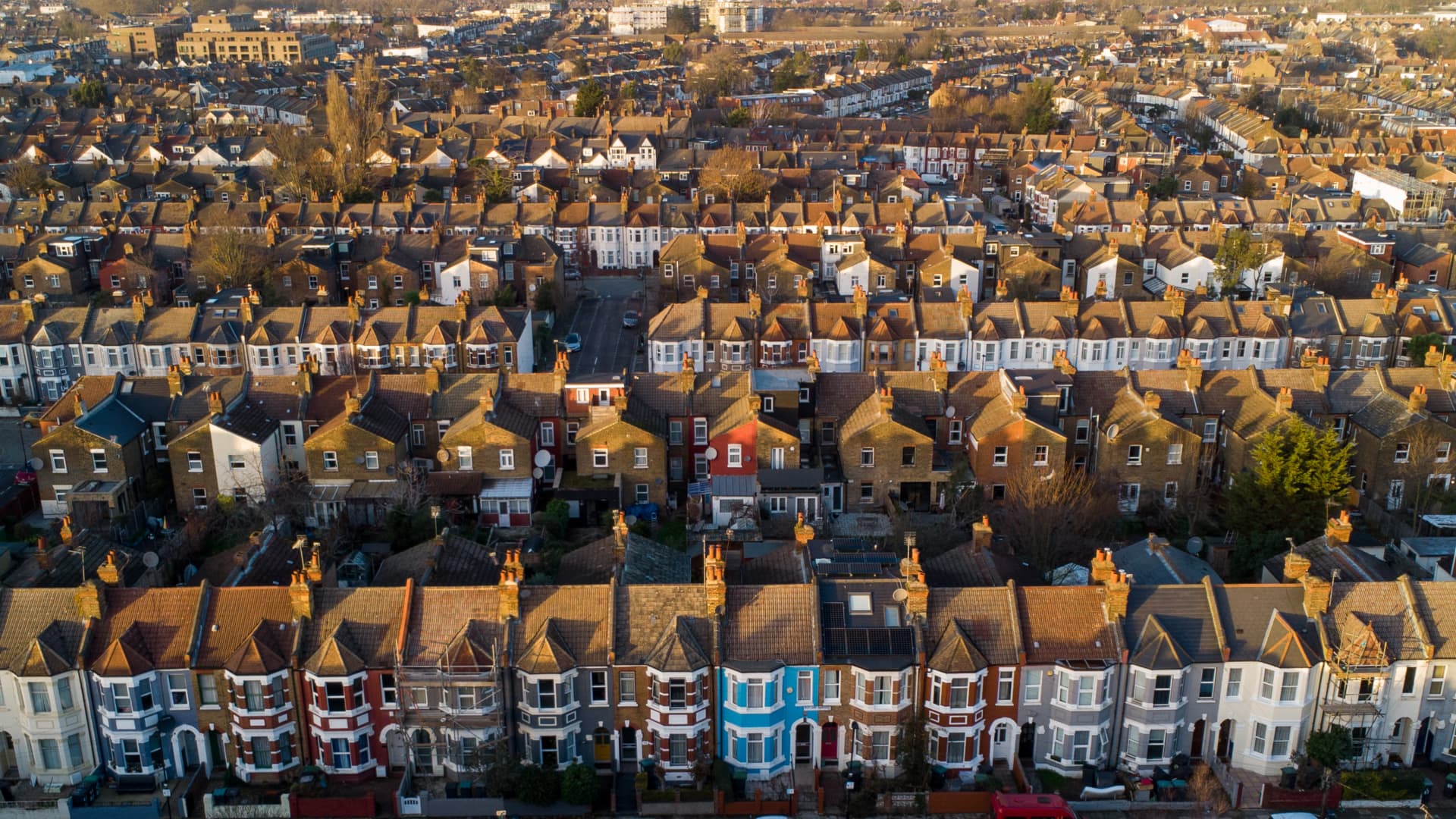Products You May Like
LONDON — U.K. house prices fell at their fastest annual pace in 12 years in June as still escalating mortgage costs piled further pressure on the property market.
Property prices slumped 2.6% in the year to June, their biggest decline since June 2011 and a sharp increase on the 1.1% annual drop recorded in May, according to mortgage lender Halifax’s latest price index released Friday.
Prices were down for the third consecutive month, slipping 0.1% since May. The average U.K. property now costs £285,932 (£364,490), down from a peak of £293,992 in August 2022.
Kim Kinnaird, director at Halifax Mortgages, said the annual decline belies a slight recovery in prices this year following the cataclysmic fallout from the U.K.’s “mini budget” in October, which saw mortgage rates soar and property prices plummet.
“Average house prices are actually up by +1.5% (£4,000) so far this year, with most of that growth coming in the first quarter, following the sharp fall in prices we saw at the end of last year,” she said.
However, she added that “the housing market remains sensitive to volatility in borrowing costs.”
House prices have ‘further to fall’
Homeowners and would-be buyers have been beset by rising borrowing costs over the past year as the Bank of England has sought to get a handle on stubbornly high inflation.
The BOE raised interest rates for the 13th consecutive time in June, hiking by a surprise 50 basis points and taking the base rate to 5%. It came as U.K. core inflation rose month-on-month in May.
Lofty inflation and higher benchmark bank rates have pushed up U.K. sovereign gilt yields, which are used to price mortgages, prompting some lenders to increase rates or pull certain products all together.
The summer is likely to see price cuts become even more widespread, and we may well see house prices fall more significantly.Sarah Coleshead of personal finance at Hargreaves Lansdowne
Sarah Coles, head of personal finance at Hargreaves Lansdowne, said the latest rate hike was not fully reflected in Friday’s housing data, likely spelling more pain ahead for borrowers.
“Two-year fixed rates started June just under 5.5% and five-year deals at 5.1%, according to Moneyfacts, and they ended the month at 6.4% and just shy of 6% respectively. All eyes will be on just how much damage may be done when new rates feed through into the figures,” Coles told CNBC.
Higher mortgage rates look set to add further downward pressure to the housing market, she added, with prices on track to fall further this summer.
“Sellers have already started cutting prices to shift their properties. Zoopla figures showed one in 20 made a cut in May, averaging 9%. The summer is likely to see price cuts become even more widespread, and we may well see house prices fall more significantly,” she added.
Liam Bailey, head of global research at Knight Frank, agreed, noting that the domestic housing market has “further to fall in terms of pricing.” In its latest global housing index released Wednesday, the real estate company said U.K. house prices fell 3.1% annually in the first quarter.
“While lower prices will be welcomed by first time buyers, higher rates mean affordability will still be stretched for most new market entrants,” he said.
Mortgage rates continue to rise
The Bank of England is expected to continue its dogged efforts to tame inflation with further hikes through the rest of this year.
Market watchers now expect rates to hit a peak of 5.75% to 6% in November, though JPMorgan said Thursday that they could hit 7% “under some scenarios.”
“Markets have continued to ramp up bets in favour of higher Bank of England interest rates in the past few days,” Matthew Ryan, head of market strategy at global financial services firm Ebury, said via email. “Swap rates now see a terminal BoE base rate of 6.5% by mid-2024 — a total of 150 additional basis points of hikes.”
That leaves mortgage rates poised to rise further before coming down, adding to pain for homeowners and further exacerbating the U.K.’s worsening rental crisis as buy-to-let landlords pass on higher mortgage repayments to tenants or exit the market entirely.
“With markets now forecasting a peak in Bank Rate of over 6%, the likelihood is that mortgage rates will remain higher for longer, and the squeeze on household finances will continue to put downward pressure on house prices over the coming year,” Halifax’s Kinnaird said.
